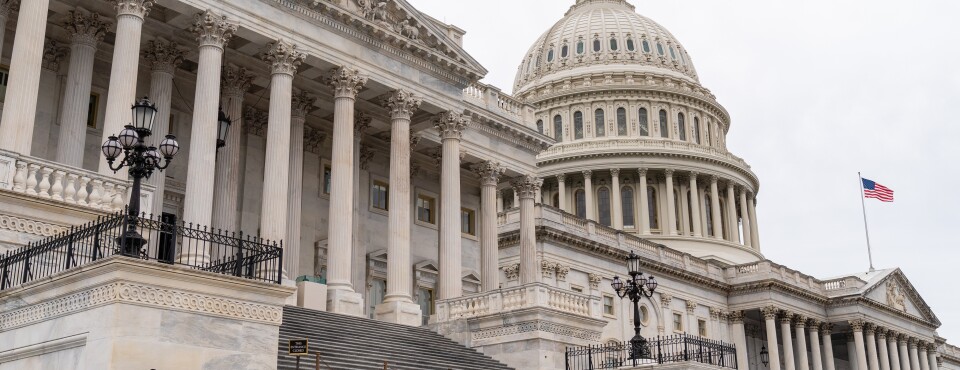- First Savings Financial (FSFG) is a Top Dividend Stock Right Now: Should You Buy?
- Hochul touts New Year savings for businesses, benefits for employees
- Health Savings Accounts Are Becoming More Popular—Here’s Why Experts Recommend Them
- If interest rates stay ‘higher for longer,’ the winners are those with cash accounts
- Colorado Mountain College’s 2024 mill levy secures $22 million in savings for taxpayers, board appoints new trustee positions
Republicans have a new chance to expand health savings accounts offered by employer plans when Congress reconvenes in 2025, revisiting a divisive policy that some Democrats support even as others denounce it as a tax break for the wealthy.
Bạn đang xem: Health Savings Accounts Poised for Comeback Under Republicans
Health savings accounts let high-deductible health plan enrollees use tax-free dollars on certain medical expenses. The money rolls over annually and can be invested tax-free for higher returns. Twenty-two percent of employers surveyed by the Kaiser Family Foundation offered HSA-eligible plans in 2024.
Advocates see the tax-advantaged accounts as a vehicle to increase both health care access and conscious spending for high-deductible plan members, who pay more out-of-pocket before insurance kicks in. Lawmakers from both parties have proposed bills to allow patients to use HSAs for everything from gym memberships and menstrual products to funeral expenses and veterinary bills.
But critics argue the accounts mostly benefit wealthier individuals who can invest the money and spend it however they like in retirement. HSAs are more likely to expose low-income people to higher out-of-pocket costs, and federal scorekeepers project expansions will cost the government tens of billions in lost tax revenue that could be spent on closing coverage gaps instead.
“They’re pretty helpful in helping people stretch their spending further than they could if they did not have access to participate in a health savings account,” said Jake Spiegel, an Employee Benefit Research Institute research associate.
HSAs can be a “hugely valuable tool” for maximizing retirement funds—but if enrollees are unable to save the money, then that “avenue to building wealth is kind of cut off,” he said.
Republican interest in revisiting HSAs is broad. Make America Healthy Again advocate Calley Means—an associate of President-elect Donald Trump’s pick for Health and Human Services Secretary, Robert F. Kennedy, Jr.—founded a company selling HSA-eligible vitamins and fitness gear through “letters of medical necessity.”
Xem thêm : Family on welfare donates Christmas gifts after collecting scrap, savings
The Heritage Foundation’s Trump-linked Project 2025 playbook calls for allowing Medicaid recipients to use HSA-like accounts to purchase catastrophic plans, while the House Republican Study Committee’s 2025 budget urges lawmakers to de-link HSAs from high-deductible plans.
Such ideas are expensive, at least on paper. Former Trump officials with the Paragon Institute endorsed tying a plan’s actuarial value—the amount of medical costs it pays on a patient’s behalf—to HSAs. The first Trump administration estimated that allowing HSAs for plans up to a 70% actuarial value would cost the federal government $28.5 billion over 10 years.
Existing HSA policies are already projected to cost the government more than $180 billion over the next decade. That money could go towards closing the Medicaid coverage gap or extending enhanced Affordable Care Act subsidies, said Gideon Lukens, a Center on Budget and Policy Priorities senior fellow.
“The question is, do we want to spend even more money on something that overwhelmingly benefits people with high incomes?” he said. “Or would we rather target federal dollars to people who can’t afford health coverage, are not covered, have medical debt, and are struggling with affording other basic needs?”
Labeling HSAs as tools for the wealthy is a “mischaracterization,” said Johns Hopkins University accounting and health policy professor Ge Bai, pointing to data that show the majority of HSA holders live in zip codes where the median income is below $100,000. Loosening requirements around the accounts could be particularly useful for gig workers who lack insurance, she said.
Expansions would also help lower-income people access HSAs, especially if they can use them with other types of plans or can receive contributions from friends or charity groups.
“Why not open it up to poor people?” Bai said. “To me, it’s unfair to say only rich people can have it.”
Congress could also simply restrict HSAs for non-medical purposes to address tax shelter concerns, she said.
Income Gaps
Xem thêm : Buying home in Seoul requires 13 years of careful savings
A 2017 Congressional Research Service analysis of tax returns shows that HSA use significantly increases with income. Data from HSA investment adviser Devenir show that just 9% of HSA holders invest the money, but they account for 41% of all HSA assets.
HSAs are less likely to be held by Black and Latino people, and the tax benefits are also far less valuable for lower-income households. Just 4% of the value goes to those making less than $50,000 a year, according to CBPP. Understanding how to maximize HSAs is also confusing and often poorly communicated to enrollees.
Additionally, low-income individuals are more exposed to HSA bank fees. A May Consumer Financial Protection Bureau report outlined concerns with high fees and low interest rates.
Rules around high-deductible plans and HSAs have gradually expanded. In July 2019, the IRS issued guidance permitting HSA-eligible plans to cover certain preventive services pre-deductible following an executive order during the first Trump administration. The agency added more to the list in October 2024, including routine and emergency contraceptives.
Congress in 2020 also allowed HSA-eligible plans to cover telehealth benefits pre-deductible in response to Covid-19. Employer and health care groups are lobbying lawmakers to extend the policy before it expires this year.
Data show employers expanded pre-deductible coverage in response to the 2019 change. Three in four opted to cover at least one additional service, according to EBRI, although only 8% covered them all.
In September, a bill (HR 3800) from Rep. Brad Wenstrup (R-Ohio) that would have codified the 2019 IRS guidance passed the House by voice vote, indicating bipartisan backing.
But divisions were on display at a House Ways and Means Committee markup of two HSA bills in 2023, where several Democrats voted for a measure co-sponsored by Rep. Earl Blumenauer (D-Ore.)
“We should be here today lowering health care costs for the working families who need it most,” said Ranking Member Richard Neal (D-Mass.), “not the top 1%.”
Nguồn: https://poissondistribution.lat
Danh mục: News





